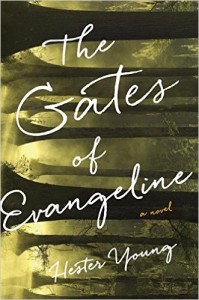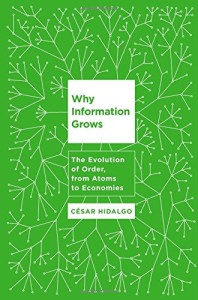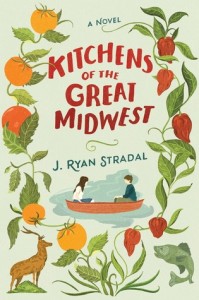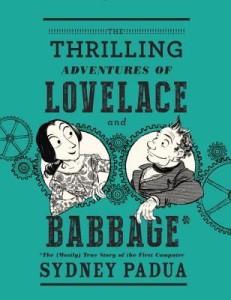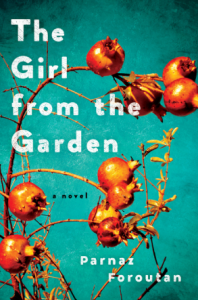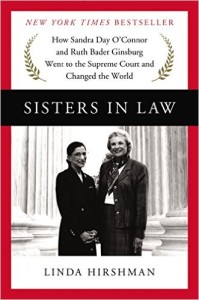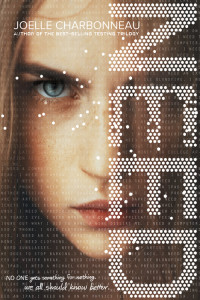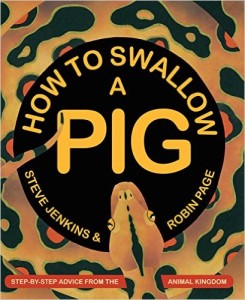
Interview with a Bookstore: Kepler’s Books
A San Francisco Institution Plans for the Future
Kepler’s Books was founded in Menlo Park in May 1955 by peace activist Roy Kepler. For 60 years, Kepler’s has been one of the key intellectual and cultural hubs for the San Francisco Bay Area, known for its literary events, knowledgeable staff, broad selection of books and magazines, and for its deep ties to the community.
Along with Cody’s in Berkeley and City Lights in San Francisco, Kepler’s led the paperback revolution in the San Francisco Bay Area in the 50s and 60s. 35-cent paperbacks were new on the scene and Roy and his cohorts used this new format to pursue their mission of democratizing reading. The bookstore soon blossomed into a cultural epicenter, attracting a loyal following among Beat intellectuals, pacifists, students and faculty of Stanford University, and other members of the surrounding communities, interested in serious books and ideas. The Grateful Dead performed at Kepler’s early in their career, and they, along with folk singer Joan Baez, often appeared at Kepler’s holding impromptu salons with local community leaders to discuss ideas, political action, and music.

Kepler’s history has been captured by journalist Michael Doyle in his book Radical Chapters: Pacifist Bookseller Roy Kepler and the Paperback Revolution:
He [Roy] founded myriad peace groups. He was a tax resister, a congressional witness, a correspondent with the high and mighty. He helped promote the nation’s first listener-supported radio station. He helped found one of the nation’s first free universities. He survived a series of violent attacks. His store [Kepler’s Books] nurtured remarkable musicians when they were young and disreputable. He helped propel the paperback revolution and trained several generations of young booksellers.
Over the years Kepler’s has won prestigious awards like Publisher Weekly’s Bookseller of the Year (1990), the Lucile Micheels Pannell Award (2008) and numerous commendations by local and state officials.
In 2012, Kepler’s worked with a group of community champions to launch the Kepler’s 2020 program to transform Kepler’s into the bookstore of the future. Under this program Kepler’s was restructured to operate in an innovative hybrid business model that includes a for-profit, community-supported bookstore, and a nonprofit organization that features rich educational and cultural programming.
 A Kepler’s Books employee helps a customer with book selection on July 11, 2013. Michelle Le/The Almanac
A Kepler’s Books employee helps a customer with book selection on July 11, 2013. Michelle Le/The Almanac
What's your favorite section of the store?
Caitlin (Bookseller): I’m often in trouble when I shelve books in our fiction and science sections. I’m always looking at the book I’m putting away and the books around where it’s supposed to go, and I find these amazing books tucked away. So I end up with a stack at the register of at least four books that I take home. And I used to think these were the only sections I loved, but the more I shelved, the more I began to search for these strange finds, and I found them everywhere! Crafts? There are books on woodworking that show you different cuts and how the wood will warp with each cut. Business? There are so many books that delineate human behavior. Reference? The most satisfying treasure trove ever! There isn’t one section that I don’t like. They all carry gems.
If you had infinite space, what would you add?
Molly (Bookseller): More books! With a major limiting factor of any bookstore being the amount of space that can physically hold books, more space would always have to equal more books! But beyond expanded inventory, one of my favorite aspects of Kepler’s is the focus on showcasing books through creative and often beautiful means. With infinite space, we would have the potential to create even more innovative and immersive displays—rooms curated like museums, homages to our favorite fantasy worlds, genre-rific celebrations, etc. through which customers could interact with literature and find something amazing to obsess over!
Praveen (Community Engagement Officer): We do have infinite space now—in the virtual world! For years we have been hearing from Kepler’s fans that they love our selection of books and our staff’s ability to put the perfect books in their hands. At Kepler’s we believe good books make great gifts. And now we are giving people the ability to share the Kepler’s magic with anyone special by gifting them one of our curated book collections through a new website GiftLit.com.
What do you do better than any other bookstore?
Praveen: It’s not easy to answer this due to lack of empirical data, but there are several things that we are doing very well. We are innovating with the drive and agility of a young start-up and, at the same time, preserving and building on the aspects of our business that customers value in a 60-year old iconic institution. We are very practical about enjoying the short-term pick-up in print book sales while simultaneously staying committed to building the bookstore of the future that’s less reliant on what’s clearly an outdated business model. Examples of this innovation to build a better model include spinning off our community work and literary events programs into a separate non-profit, a live weekly radio show in the store, a new web-based service to help people gift curated book collections. Core to all of this is our commitment and efforts to build a highly democratic organization where all staff members are valued, provided with decent living wages and benefits, and given 100 percent transparency and participation into all decisions. We are aiming to get to a starting wage of $15 per hour in 2016.
Who is your favorite regular?
Nancy (Bookseller): One who is always so grateful that I want to buy her a book. She is an active supporter of our store. She sends in her friends and out-of-town guests. She brings treats for the staff. She is an evangelist who leaves our advertising materials all over the Stanford campus. She knows every staff person and their literary tastes and who can help her find what she needs.
Marilyn (Bookseller): Our great customers cover a broad spectrum of age and interests. One customer always asks for my nonfiction and science recommendations. Several ask what I’m really enjoying currently and ask my honest opinion about a title. One boy was positive he didn’t like ANY books at all until I found just the right funny book for him. Now he zooms through everything I put into his hands. Another customer walks with me through the kids’ section as I pull a great pile of books for his niece. Local school librarians will come in to ask what books I like for certain ages or interests. Our customers really value our commitment to the community.
What’s the craziest situation you’ve ever had to deal with in the store?
Michael (Bookseller): Very early in my career at Kepler’s, an older gentleman came in and began to tell me about how he used to visit Kepler’s in the early days. Older customers usually have interesting anecdotes to share from Kepler’s colorful past, so I asked him to tell me how it used to be back in the day. He proceeded to tell me how, in the 1960s, he used to stop by Kepler’s to meet his LSD dealer and score. Without missing a beat, I looked at him and said “Well, I don’t think I’ll be able to help you with that today.”
What’s your earliest memory of visiting a bookstore as a child?
Jenna (Bookseller): My earliest memory of visiting a bookstore was in an old London home that had been converted into a bookstore. Stacks of leather-bound books covered the windows, resembling a game of Tetris. As I dragged my Mom through the freshly painted red door, I remember feeling overjoyed that I was surrounded by mounds of books.
If you weren't working in a bookstore, what would you be doing?
Jenna: If I wasn’t working at a bookstore, I’d be applying to work at a bookstore!
What’s been your biggest surprise about working in a bookstore?
Praveen: I have been in bookselling since 2007 when my business partner and wife Christin and I jumped into this field after leaving behind our promising corporate careers. I was shocked then and continue to be shocked now at the inadequate compensation levels in the business. The gap between actual wages and decent living wages has grown and gotten worse during this time—especially in high cost-of-living regions like the San Francisco Bay Area. I believe this is the number one challenge for bookstores and a major driver of why we are focused on building a better model for the future.
SLIDESHOW: Kepler’s Books Staff Recommendations
- NANCY (BOOKSELLER) RECOMMENDS: A New York magazine writer takes a job investigating the 30-year-old cold case of a prominent Louisiana family whose toddler has gone missing. The first in a trilogy, this sweeping southern mystery was one I didn’t want to put down.
- PRAVEEN (COMMUNITY ENGAGEMENT OFFICER) RECOMMENDS: A breakthrough new book by an MIT scholar on why human civilization is successfully rebelling against the second law of thermodynamics. Hidalgo builds on previous works by Darwin, Boltzmann, and Schrödinger and is causing a paradigm shift in our understanding of why individuals, organizations, and economies prosper.
- NANCY (BOOKSELLER) RECOMMENDS: Each chapter is a new story revolving around the same character, a woman with an incredibly discerning palate. But with humor and pathos, it’s not just about food, but also about family. I even tried one of the recipes!
- CAITLIN (BOOKSELLER) RECOMMENDS: The most whimsical, informative, OBSESSIVE, amazing book about the difference engine/analytical engine/Charles Babbage/Ada Augusta King, Lady of Lovelace/Victorian England/primary sources ever made. My heart is just completely consumed by this book and will be for a long time.
- SINA (BOOKSELLER) RECOMMENDS: The social mores of Iran, the jealous nature of both men and women, the need to remain whole as a family, self-worth and sacrifice are all major themes of this tightly-knit novel. Flawed characters and beautifully crafted language make this a great book club read.
- MARILYN (BOOKSELLER) RECOMMENDS: Long before Justices O’Connor and Ginsburg served on the Supreme Court, they set new paths for women in law and politics while establishing their careers. Their experiences as women added a new dimension to the court’s decisions on wide ranging cases. This book brings a welcome look into the Court and its Justices through changing times.
- CRESSIDA (BOOKSELLER) RECOMMENDS: Jason’s memoir shines a light onto the rare profession growing increasingly important: airborne firefighters, who parachute into burning areas too remote to otherwise reach. He shares the history of smokejumping, the pioneers who began the program in 1939, and the trials he underwent to join these memorable few. A compelling, timely read.
- KIRSTEN (SHIFT MANAGER) RECOMMENDS: Nottawa High School teenagers have been invited to join a site that offers promises to grant their every need, regardless of consequences. It starts out with harmless pranks which soon turn into crimes. Students start to realize the difference between a WANT and a NEED. After all, no one gets something for nothing.
- BECCA (KIDS SPECIALIST) RECOMMENDS: Ever wondered how a spider spins its web, or how whales catch fish? Learn insider secrets of the animal world in this fascinating step-by-step picture book. Fun and funny, this is terrific nonfiction packed with details and gorgeous illustrations that bring the natural world to life.
- Henkes is the author of my heart. His books make the world seem kinder, more hopeful. And Waiting is Henkes at his best. A perfect read-aloud – relaxing, charming, reflective – about five toy animals who spend their day looking out a window, waiting. This is a book to treasure.
Feature photo courtesy of Irene Searles Photography.









